
By : NASRIN MODAK SIDDIQI
MUMBAI :
Before the lockdown, far in the empty fields at Vasai, near Mumbai, Mulund resident, Edison Samuel, used to take his five-and-a-half-year son, Eric, with an entourage of remote controlled cars, and put them to a good adventure. The joy on their faces and the sheer adrenaline rush was a thing to witness. This is true for several RC car enthusiasts in the country with the numbers only rising by the day. Lockdown be damned. While the hobby for Samuel is fairly new, the father-son duo, are totally hooked. Now, they go to the open stretch of empty roads near Airoli, to experience the thrill, full throttle!
While kids the age of Eric are only playing with manual cars or are glued to the screen with their PlayStations and Wii, Eric, is learning to use his motor skills through a hobby that will go on to have numerous benefits. “It is always better to start young. I want him to pursue the hobby, but there aren’t many expert tutors in the city,” says 45-year-old Samuel, who is the Principal, of a school in Mulund. “It is pretty much something that you learn on your own, by looking up the internet, joining FB groups, and talking to like-minded people who are kind enough to share their expertise. However, more or less, you are on your own” he says.
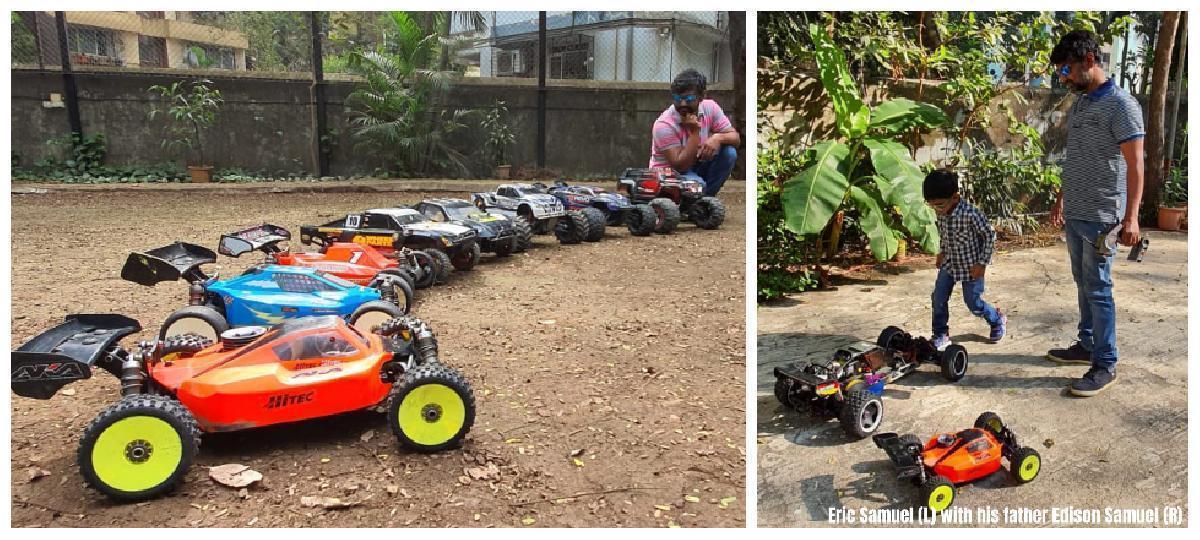
In fact, only about two years ago, the RC scene in Mumbai was buzzing with frequent races and meet-ups at BKC, Panvel, and a few malls in the Western suburbs, but there has been a steady decline. However, the RC race at the IIT Bombay Techfest is a prestigious affair. So much so, that it actually draws quite a few racers from across the country and some serious international drivers are invited for it as well. Different teams pit their self-developed Remote Controlled Racing Cars against each other on a dirt track at the venue and the ambience is nothing short of “turbo-charged!”
However, RC Car Racing is not without its set of challenges. “Why can’t they have a permanent track and groom racers all year round? When you can spend INR 600,000 on bringing an international driver down, why not spend INR 100,000 on constructing a good track,” asks two time National champion, Murali Kannadhason. He is still the only Team Hong Nor factory sponsored driver in India and his team, Joy Rising Hobby, (JRH), is the only team from India to represent India in various races held abroad including the Asia championship, Asia contest amongst others.
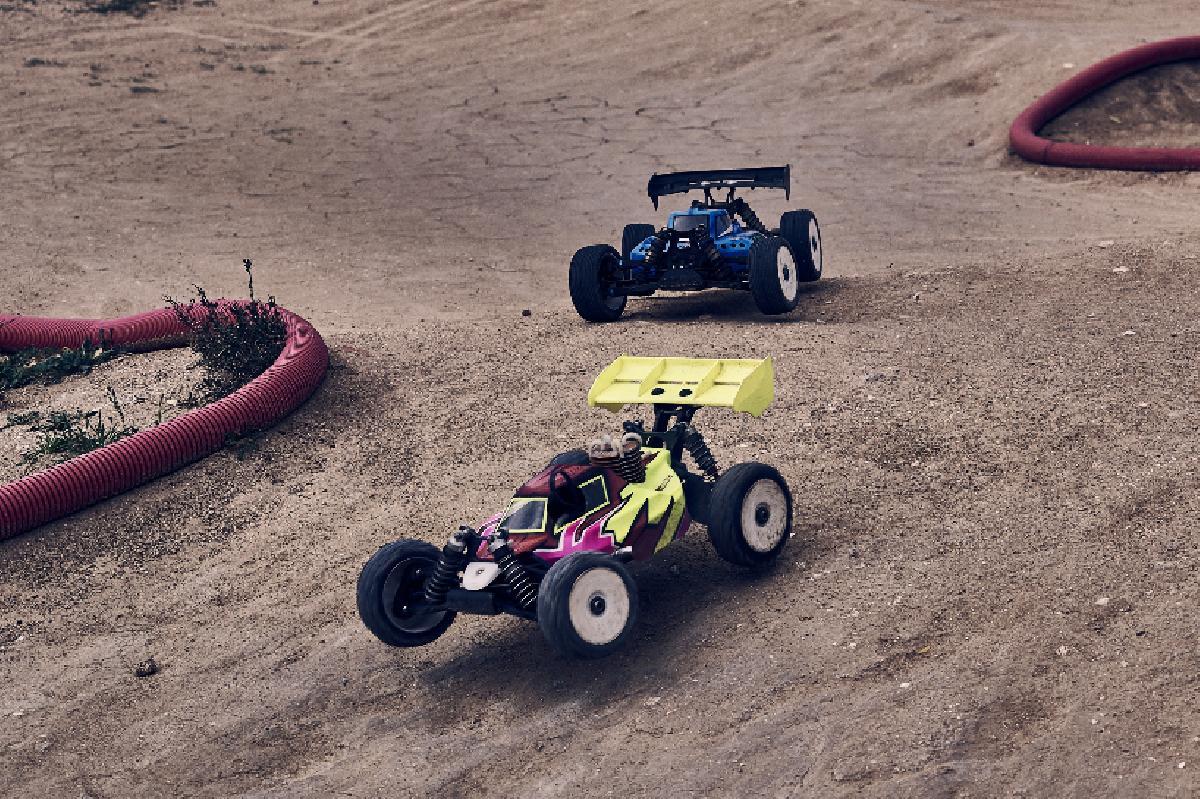
“It is sad to see one of the most prestigious races in the country - go down the route of sponsorship but not give anything back to the sport. When you are inviting international drivers - the idea should be to have them train or discuss the sport with the drivers here. Otherwise, what is the use,” he asks.
Kannadhason has singlehandedly kept the RC scene kicking in the South. “For me, it is all about passion and wanting to spread the spark. Though I run Joy Rising Hobby - a business of selling cars and parts - that is not my bread and butter and so, I am not just keen on making sales from it like many others who enter the profession are. Their agenda is to sell cars. My business, on the other hand, is set up, to supplement the hobby. The idea is to help serious hobbyists achieve the best results on track in India,” says Kannadhason.
​Another reason that killed the hobby for many cities, according to him, is the fact that the sport was turning out to be all about the cash prize. “We’ve witnessed some serious fights over it and hence discontinued the practice. For now, we just plan races over the weekend, fly down to Coimbatore, have a great boys’ trip with chilled beers, race, and come back refreshed to get back to our work lives. It’s fun! And that is what the idea of a hobby should be - it should spark joy, not rage,” he explains.
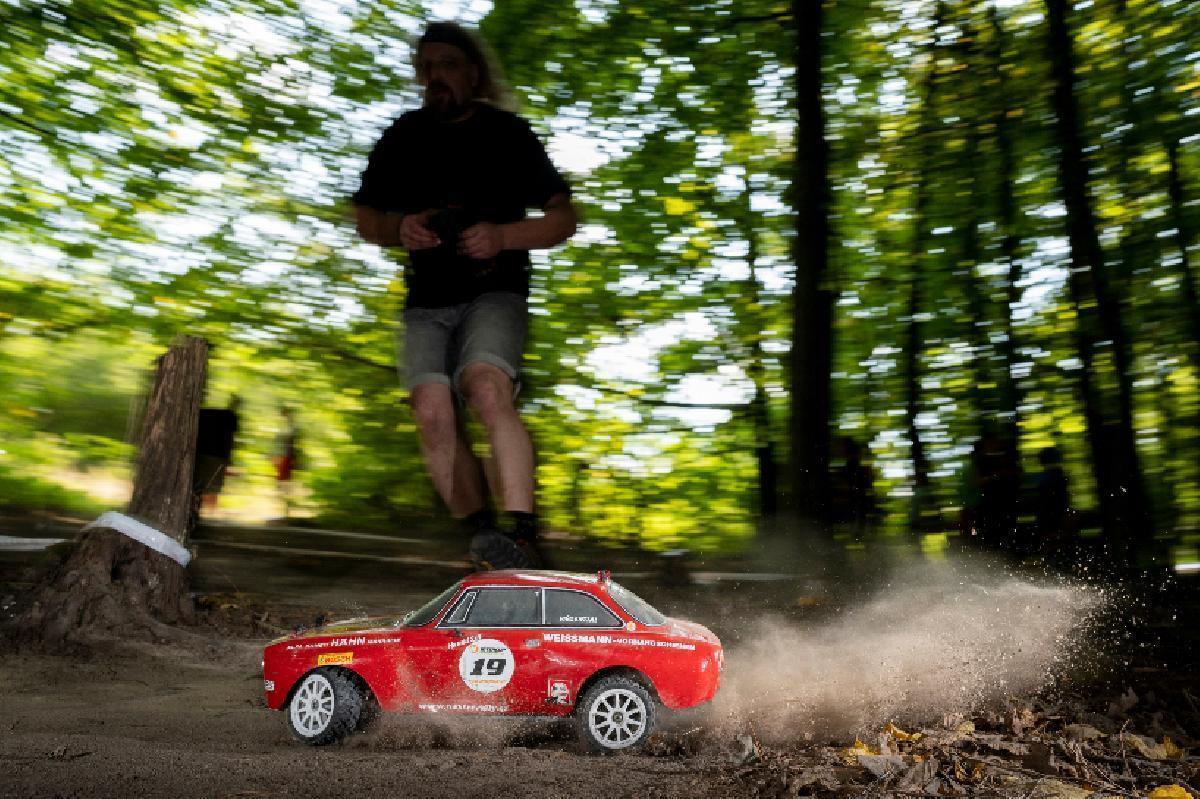
So has the lockdown killed the sport? “Not really. In fact, it gave the hobby more momentum as people started taking hobbies more seriously with all the extra time on their hands. We’ve seen a surge in sales during the lockdown - many old timers who wanted to get back to it as well as several new ones as well,” he says.
These RC cars, manufactured by brands such as Traxxas, Kyosho Mini Z, PN Racing, Losi, ECX and Proboat come loaded with real world technologies like active rear suspension, active differential, adjustable caster and a 4-channel transmitter. You can even personalise or upgrade these cars with additional parts to improve their performance. Since most of the parts are models of the real car, driving them takes almost the same amount of effort. Also, most hobbyists clean and conduct minor repairs of their own cars. “We get to learn so much about the car and its engineering, through this,” admits Samuel. Kannadhason, too is keen that RC technology is taught at Engineering colleges. “When you design cars on your own and develop models according to the given conditions and tracks, you are improving as an engineer, a sportsperson, and a hobbyist,” he says.
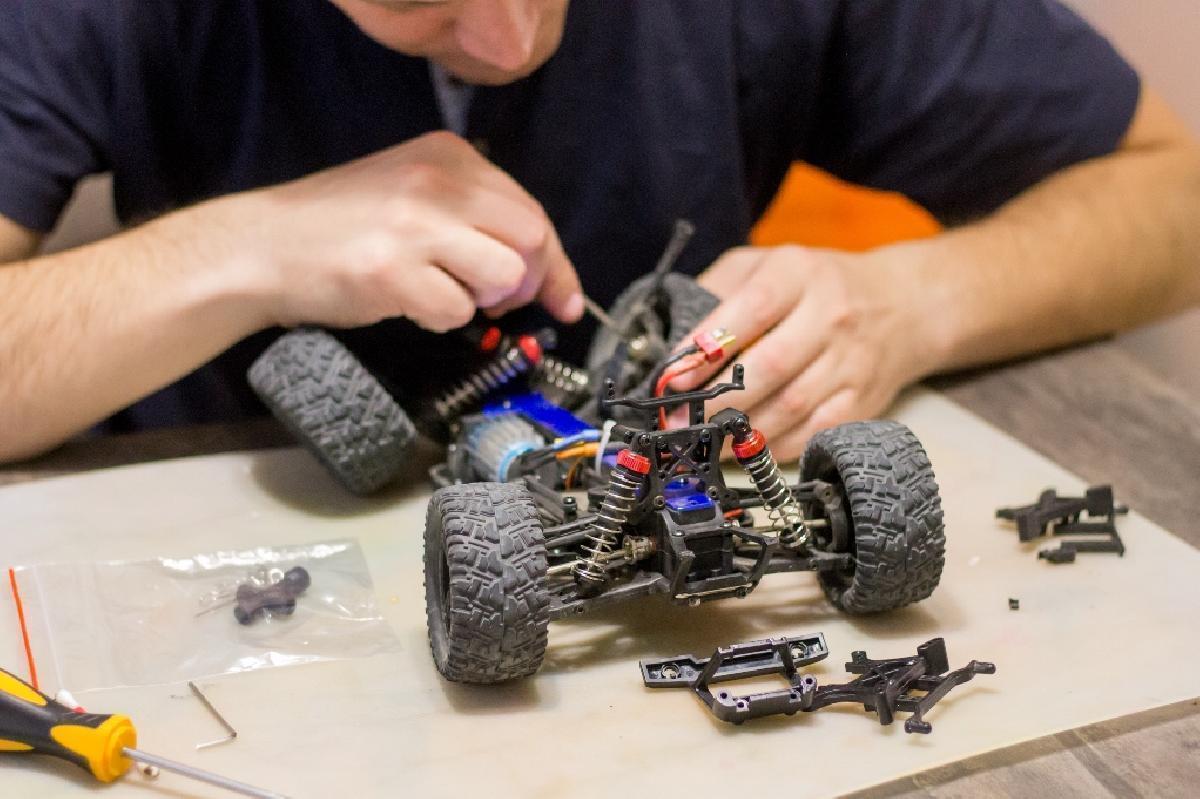
IT engineer, Saurabh Srivastava, quit his corporate job to pursue his hobby of flying drones and is a freelancer with the Indian film industry. His other hobby of RC cars keeps him busy on weekends but he still feels it is at a very nascent stage - a hobby for rich, as some think of it. “Well, the truth is, one can start for as little as INR 5000. The trouble is that it still isn’t very organised and isn’t common. Not many get to see it or experience it. One only hears of smaller groups that practice this hobby with friends and family at various places. There is no official forum or organisation for such events. It is usually enjoyed by just an informal group of people. I’ll say, it is a great way to enhance technical knowledge and can also aid in STEM learning for kids. In fact, many students participate in RC challenges and competitions held at college fests where RC racing and robot wars are common,” says Srivastava.
There are a few other impediments. Government regulations and restrictions pertaining to import and wireless equipment is one says Srivastava. “Since this hobby involves remote controls, they are mostly imported and as per the govt regulations, a proper WPC approval is required by the department of Wireless Planning and Communication. Getting a type approval for radios is almost impossible as it costs way too much to apply for a license. The licence is model specific and for every new model, a fresh approval is required. Besides, the average cost of a transmitter (radio/remote) is approximately INR 7,000 and a WPA approval for it costs more than INR 25,000. Then there is the other issue of custom duty. All imported items are subject to custom duty and hobby items attract the maximum. The total custom duty for hobby items is approximately 60 per cent on CIF (Cost + Insurance + Freight). This kills a common man from pursuing this hobby. The parts availability is another challenge. As the RC products are manufactured elsewhere, the spares have to be imported as well. Again, the custom duties and shipping take a big toll,” explains Srivastava.
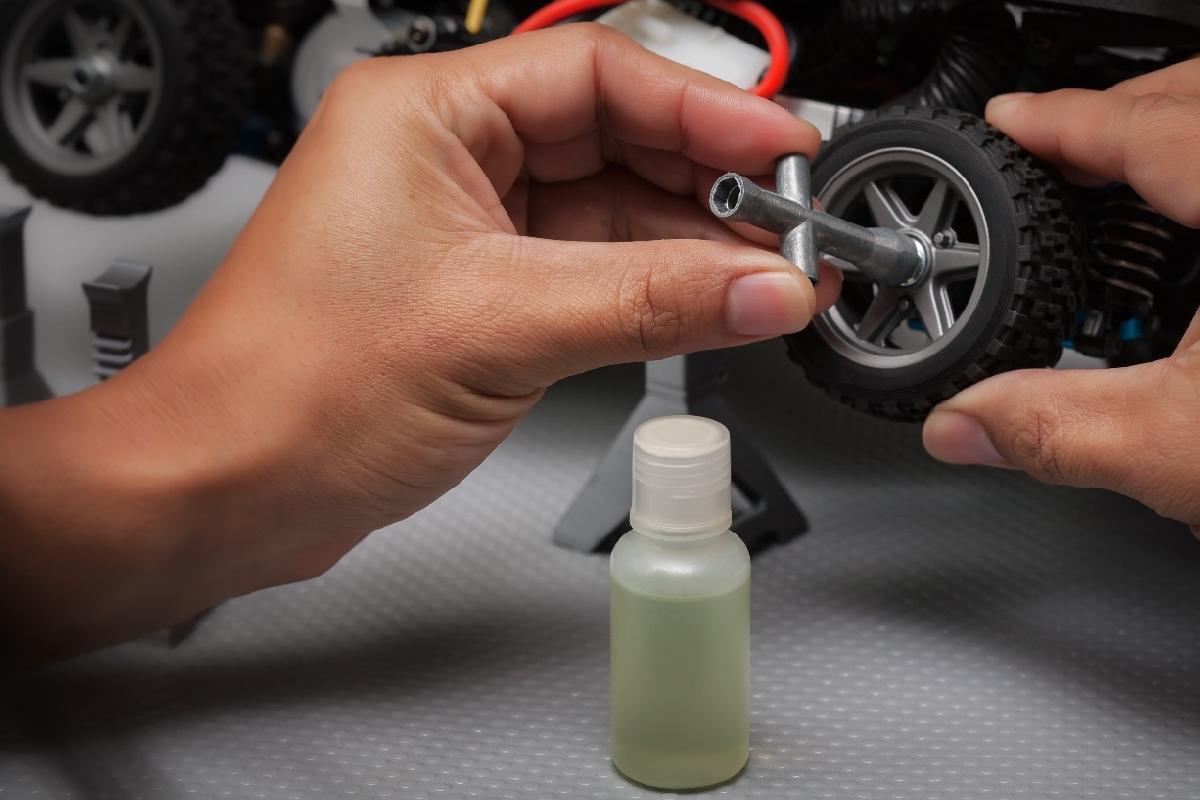
Srivastava believes that it is important to promote this not just as a hobby but as a sport. There are many learnings in this hobby and it helps grow your analytical skills. A lot of dedication and perseverance is required to build this hobby. Like many countries in the East and in the West, there can be competitions organised at National levels. Above all, the government can help with some relaxations on imports just like for the sports industry. Only if this hobby is seen as a sport, can it sustain in the long run. Newbies must start by getting in touch with a fellow hobbyist rather than downloading information from the Internet. Also, there are various simulators that are available and which can be practiced on before trying the real stuff. Remember we are talking about hobby grade products and not toys. If not used properly and carefully, these have the potential to cause damage to life and property. There are various forums and websites in India for this hobby community such as www.rcindia.org. This is the biggest online community for the RC hobby in India,” says Srivastava.
Since there is not a substantial market for this hobby and the investment is low, there are very few walk-in stores in the country. “The problem with Local Hobby Shops (LHS) is the investment, risk and availability. Not all LHS will have the things that you may need. None of the shops in India are fully equipped with all models and spares. However, online shops such as www.rcmumbai.com, www.rcdhamaka.com and www.rcbazaar.com are certainly good places to start,” says Srivastava.
